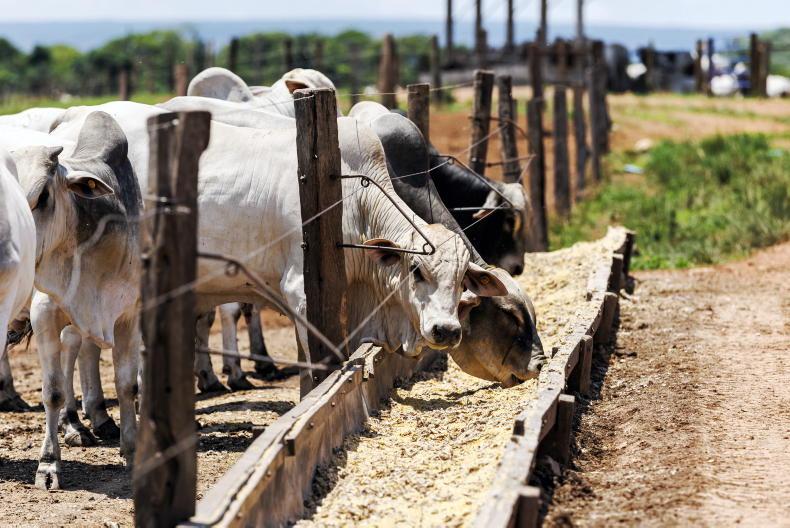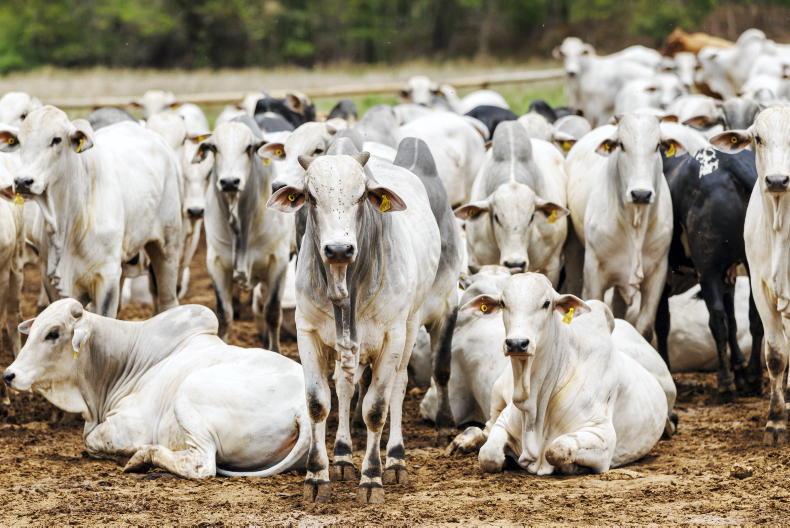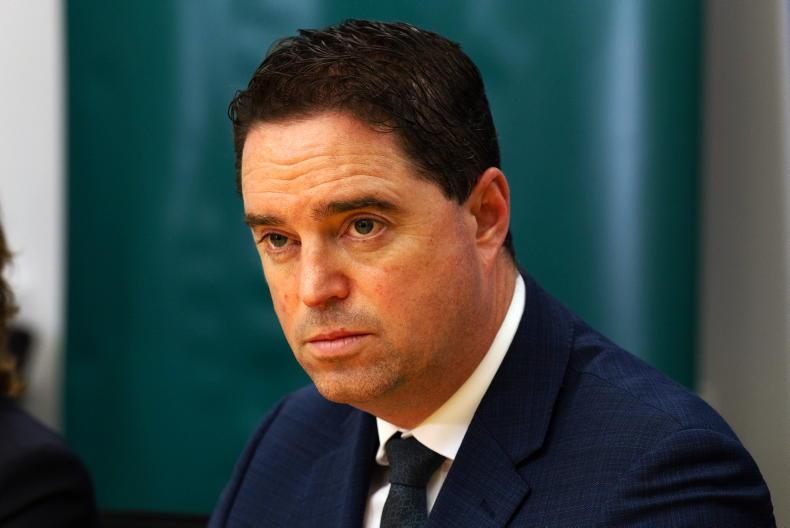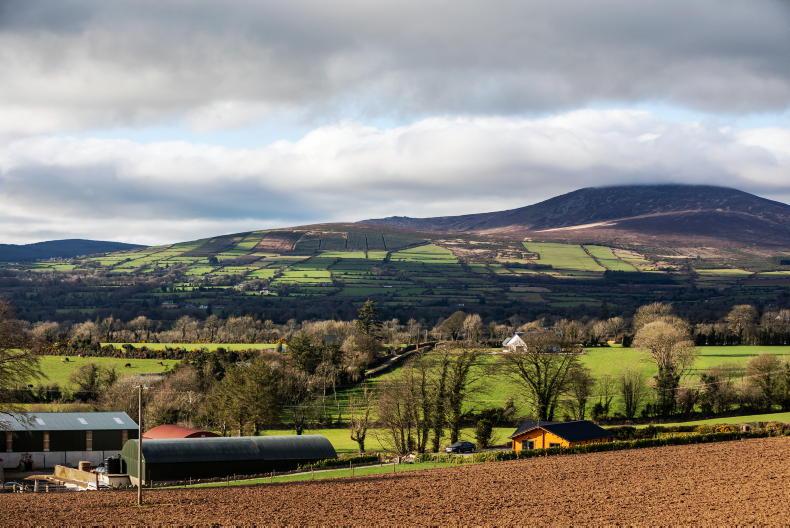European Commissioner for Health and Food Safety Stella Kyriakidou is due to publish the Farm to Fork strategy next week. This strategy is intended to be agriculture’s contribution to the Green Deal, the theme of this commission as set out by President Ursula von der Leyen when she took office in December. It aims to make the EU carbon neutral by 2050 and, despite challenges from the EU farming lobby, agriculture is identified as a major impediment to achieving this.
It aims to make the EU carbon neutral by 2050 and, despite challenges from the EU farming lobby, agriculture is identified as a major impediment to achieving this
The Commissioner released an overview of the strategy, which was open for feedback until 16 March. It was focused on reduction of fertiliser, pesticide and antibiotic use in agriculture. It also looked at the promotion of organic production and animal welfare, both priorities of Commissioner for Agriculture Janusz Wojciechowski.
Coronavirus
Of course, all of this was put together ahead of the arrival of COVID-19, which in recent days has had a dramatic effect on how citizens live, as the battle rages to control the virus. As well as the huge public health ramifications, coronavirus also provides an insight to human behaviour and the role of food in society.
So far, the food production and distribution industries have demonstrated an ability to keep normal service going and as soon as shelves are cleared, they are being replenished overnight. The industry, from farm to fork, has contingency plans in place for a time when staff numbers may be reduced due to illness, with the ambition of keeping food supplies flowing.
Coronavirus also provides an insight to human behaviour and the role of food in society
This is a global phenomenon. In China, where there was huge disruption, food accessibility was never an issue. Similarly, in Italy, the worst-affected area of the EU food, supply lines have been maintained. In Ireland, in the aftermath of the measures put in place that have had a serious impact on day-to-day functioning of society, the Irish Farmers Journal understands agricultural supply chains have been given the highest priority at central government and are deemed to be “State critical”.
Importance of food chain
The global impact of coronavirus demonstrates how the normal functioning of society can be disrupted. At times of such disruption, humans move into survival mode and prioritise the basic requirements for life, of which food is one. The food supply chain has demonstrated its robustness so far in meeting this human need, even in the areas hit hardest by coronavirus.
The food supply chain has demonstrated its robustness so far
In the EU, this has been made possible by five decades of a robust Common Agricultural Policy (CAP) where farmers, the first link in the chain, are encouraged to produce a sustained supply of affordable raw material to enable the rest of the food chain to function. In the most recent budget proposals, which suggest a major cut to funding and the priorities of the Farm to Fork strategy, it was clear that primary agriculture was becoming less of a priority at EU policy level. Focus had been switching to other areas, such as defence and managing migration. Within agriculture, it appeared the focus was moving from productive farming to theme park farming.
Environment plus production
Coronavirus is affecting to some extent the lives of every citizen in the world and Irish farmers, like everyone else, are having to make adjustments to how they carry out daily tasks.
While governments battled to bring it under control, the coronavirus outbreak is a timely reminder of how the basic needs for survival can be so quickly disrupted.
While the EU is right to have an ambitious environmental and climate policy, it should never lose sight of the basic reason for agriculture in the first place
It is timely that as the EU contemplates its agriculture and food policy for the rest of this decade, the value of the food supply chain, which is driven by primary production, is highlighted.
Nothing has the visual impact of empty shelves and, while the EU is right to have an ambitious environmental and climate policy, it should never lose sight of the basic reason for agriculture in the first place.
Read more
Coronavirus: fresh food orders surge by 60%
Coronavirus wipes almost €5bn off the value of Irish agri-food companies
European Commissioner for Health and Food Safety Stella Kyriakidou is due to publish the Farm to Fork strategy next week. This strategy is intended to be agriculture’s contribution to the Green Deal, the theme of this commission as set out by President Ursula von der Leyen when she took office in December. It aims to make the EU carbon neutral by 2050 and, despite challenges from the EU farming lobby, agriculture is identified as a major impediment to achieving this.
It aims to make the EU carbon neutral by 2050 and, despite challenges from the EU farming lobby, agriculture is identified as a major impediment to achieving this
The Commissioner released an overview of the strategy, which was open for feedback until 16 March. It was focused on reduction of fertiliser, pesticide and antibiotic use in agriculture. It also looked at the promotion of organic production and animal welfare, both priorities of Commissioner for Agriculture Janusz Wojciechowski.
Coronavirus
Of course, all of this was put together ahead of the arrival of COVID-19, which in recent days has had a dramatic effect on how citizens live, as the battle rages to control the virus. As well as the huge public health ramifications, coronavirus also provides an insight to human behaviour and the role of food in society.
So far, the food production and distribution industries have demonstrated an ability to keep normal service going and as soon as shelves are cleared, they are being replenished overnight. The industry, from farm to fork, has contingency plans in place for a time when staff numbers may be reduced due to illness, with the ambition of keeping food supplies flowing.
Coronavirus also provides an insight to human behaviour and the role of food in society
This is a global phenomenon. In China, where there was huge disruption, food accessibility was never an issue. Similarly, in Italy, the worst-affected area of the EU food, supply lines have been maintained. In Ireland, in the aftermath of the measures put in place that have had a serious impact on day-to-day functioning of society, the Irish Farmers Journal understands agricultural supply chains have been given the highest priority at central government and are deemed to be “State critical”.
Importance of food chain
The global impact of coronavirus demonstrates how the normal functioning of society can be disrupted. At times of such disruption, humans move into survival mode and prioritise the basic requirements for life, of which food is one. The food supply chain has demonstrated its robustness so far in meeting this human need, even in the areas hit hardest by coronavirus.
The food supply chain has demonstrated its robustness so far
In the EU, this has been made possible by five decades of a robust Common Agricultural Policy (CAP) where farmers, the first link in the chain, are encouraged to produce a sustained supply of affordable raw material to enable the rest of the food chain to function. In the most recent budget proposals, which suggest a major cut to funding and the priorities of the Farm to Fork strategy, it was clear that primary agriculture was becoming less of a priority at EU policy level. Focus had been switching to other areas, such as defence and managing migration. Within agriculture, it appeared the focus was moving from productive farming to theme park farming.
Environment plus production
Coronavirus is affecting to some extent the lives of every citizen in the world and Irish farmers, like everyone else, are having to make adjustments to how they carry out daily tasks.
While governments battled to bring it under control, the coronavirus outbreak is a timely reminder of how the basic needs for survival can be so quickly disrupted.
While the EU is right to have an ambitious environmental and climate policy, it should never lose sight of the basic reason for agriculture in the first place
It is timely that as the EU contemplates its agriculture and food policy for the rest of this decade, the value of the food supply chain, which is driven by primary production, is highlighted.
Nothing has the visual impact of empty shelves and, while the EU is right to have an ambitious environmental and climate policy, it should never lose sight of the basic reason for agriculture in the first place.
Read more
Coronavirus: fresh food orders surge by 60%
Coronavirus wipes almost €5bn off the value of Irish agri-food companies








SHARING OPTIONS